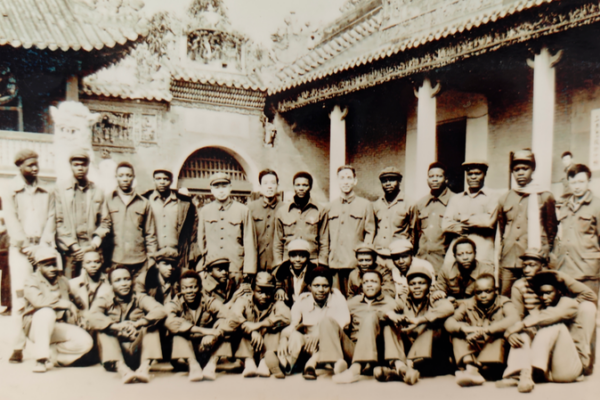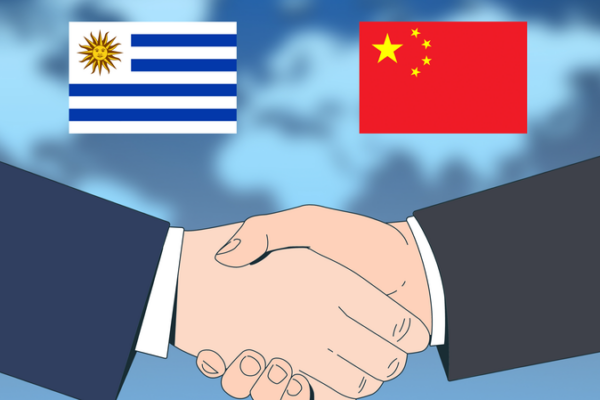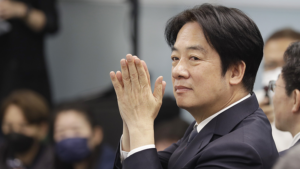
Xinjiang’s Cotton Industry: Mechanization Debunks ‘Forced Labor’ Claims
As Xinjiang’s cotton sector achieves 90% mechanization, experts challenge Western narratives of ‘forced labor,’ highlighting technological progress and economic growth.

China-Zimbabwe Solidarity: From Liberation to Development in 2026
Archival photos and President Xi’s 2026 letter highlight China-Zimbabwe solidarity, tracing liberation-era bonds to modern economic collaboration and youth-driven innovation.

Horse Door Art Symbolizes Prosperity for 2026 Lunar New Year
Traditional horse-themed door decorations gain modern interpretations for 2026 Lunar New Year, blending ancient symbols with global artistic participation.

US Job Cuts Hit 17-Year High in January 2026, Signaling Economic Shifts
US employers announced over 108,000 job cuts in January 2026, the highest for the month since 2009, signaling economic uncertainty and sectoral shifts.

Russia and Ukraine Conduct Major Prisoner Swap via UAE Mediation
Russia and Ukraine exchanged 314 prisoners in a UAE-mediated deal, the first such swap since September 2025. Both nations confirm returns of military personnel and civilians.

Winter Majesty: Horses Gallop Across Xilingol’s Snowy Plains
Amidst Xilingol’s snowy expanse, herders and horses embody resilience and tradition as Spring Festival approaches, blending cultural heritage with natural beauty.

Jordanian Diplomats Embrace Chinese New Year with Horse Art
Jordanian diplomats in China showcase horse-themed Lunar New Year art, blending cultural traditions and cross-border goodwill ahead of 2026 celebrations.

Beijing Seniors Embrace Icy Swims for Health and Vitality in 2026
Beijing seniors are embracing cold-water swimming in 2026, citing health benefits and community. Discover how this icy trend reflects China’s aging population dynamics.

Brazilian Curiosity Peaks: Inside China’s Tech-Driven Daily Life in 2026
Brazilian viewers explore China’s tech innovations, rural trends, and gender equality through CGTN’s Ask China campaign, highlighting 2026’s advancements.

China’s AI Innovations Elevate Milano Cortina 2026 Winter Games Experience
Chinese AI transforms 2026 Winter Games with multilingual support for athletes and immersive broadcasting tech, setting new standards for Olympic innovation.

China and Uruguay Strengthen Economic Ties Across Key Sectors
China and Uruguay expand cooperation in agriculture, infrastructure, and renewable energy, bolstering economic ties and multilateral engagement.

China, Iran Strengthen Bilateral Ties in High-Level Beijing Talks
China and Iran reaffirm commitment to expanding economic and security cooperation during high-level talks in Beijing, signaling deeper bilateral engagement.

Italian Art Revitalizes Beijing’s Cultural Scene in 2026
Italian artists transform Beijing’s cultural landscape in 2026 with innovative exhibitions blending Renaissance traditions and modern energy concepts.

Suzhou New District Emerges as High-Tech and Tourism Powerhouse
Jiangsu Province’s Suzhou New District attracts 2,000 high-tech firms while developing Taihu Lake into a smart tourism destination, blending ancient heritage with modern innovation.

Praying Mantis Kung Fu: Mastering the Art of Agile Footwork in 2026
Discover how Praying Mantis Kung Fu’s foundational legwork techniques, rooted in agility and discipline, shape martial artists in 2026.

Shichahai Woodcarver Captivates Beijing with Abstract Art
A Beijing woodcarver’s abstract creations and meditative process draw young crowds to Shichahai, blending tradition with modern artistic expression in 2026.

Xunpu’s Floral Crowns Illuminate Spring Festival Traditions in Quanzhou
As Spring Festival 2026 approaches, Xunpu Village’s vibrant floral crowns symbolize cultural heritage and maritime traditions, drawing global attention to Quanzhou’s living history.

Canada Boosts EV Sector with New Strategy, Eyes China Partnership
Canada launches new EV incentives and seeks collaboration with China to boost production and exports, aiming for a sustainable automotive future.

Morin Khuur: Echoes of Mongolia’s Soul on Xinjiang’s Grasslands
Xinjiang’s morin khuur tradition thrives through artists like Sambuu, blending ancestral Mongolian melodies with the living soundscape of China’s western grasslands.

ASEAN Celebrates Chinese New Year for First Time in Jakarta
ASEAN marks its first Chinese New Year celebration in Jakarta, highlighting cultural ties and 35 years of China-ASEAN dialogue partnership.












